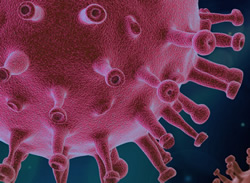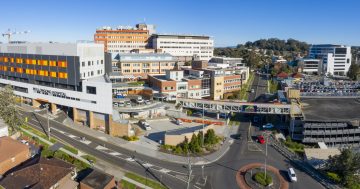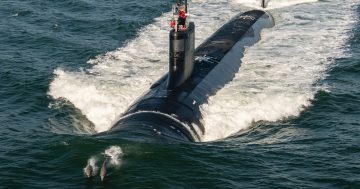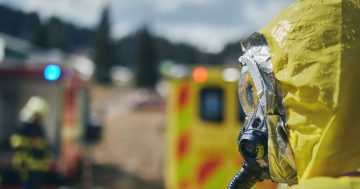 The Australian Nuclear Science and Technology Organisation (ANSTO) has charted three aircraft to rush potentially life-saving cancer treatments for children from Japan to Australia for use in local hospitals.
The Australian Nuclear Science and Technology Organisation (ANSTO) has charted three aircraft to rush potentially life-saving cancer treatments for children from Japan to Australia for use in local hospitals.
The international overnight dash for nuclear medicine took place last week, flying the radioisotope Iodine 123 (I123 mIBG) into the country where it was needed by up to a dozen or so patients around Australia at the same time.
General Manager of ANSTO Health, Ian Martin, said the challenge was to transport the nuclear medicine speedily as I123 mIBG had a short half-life, expiring within 33 hours of being manufactured in Japan.
“We need to get the isotopes from point A to point B before they decay too much to be effective, a complex task when ‘B’ is in another hemisphere,” Mr Martin said.
“While I123 mIBG is normally imported via commercial flights from Japan, the lack of flights because of the COVID-19 crisis has significantly disrupted the normal supply chain.”
He said that to ensure patients, most of whom were children, didn’t miss out on the important medicine, ANSTO chartered three flights and coordinated deliveries with hospitals in five states.
He said that after being manufactured in Japan on Monday morning, the medicine was on a charter jet to Sydney on Monday night, landing in Sydney on Tuesday morning with some going straight to Liverpool and Westmead Children’s Hospitals, with the remainder to hospitals in Adelaide, Perth, Brisbane and Melbourne.
“The medicine needed to be used on patients by Tuesday night,” Mr Martin said.
Co-Head and Chief Nuclear Medicine Scientist in Nuclear Medicine at The Children’s Hospital at Westmead, Justine Trpezanovski said the radioisotope was used to image children who have neuroblastoma, to either diagnose the condition or to monitor their treatment.
“In our pediatric setting, we use it to assist two to three patients per week,” she said.
Mr Martin said that whatever the mode of transport, ANSTO was focused on doing everything it could to supply life-saving nuclear medicine for Australians around the country.











